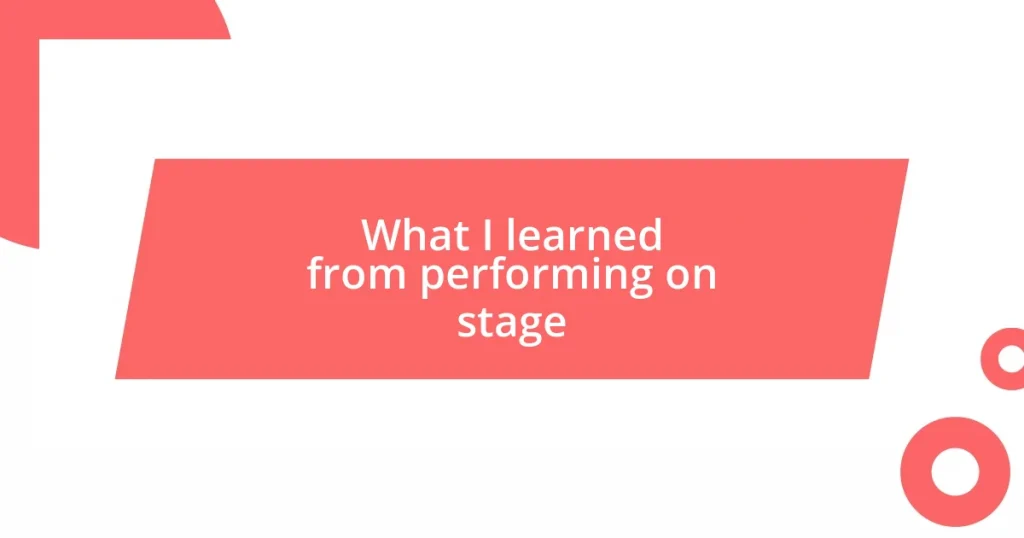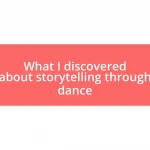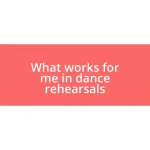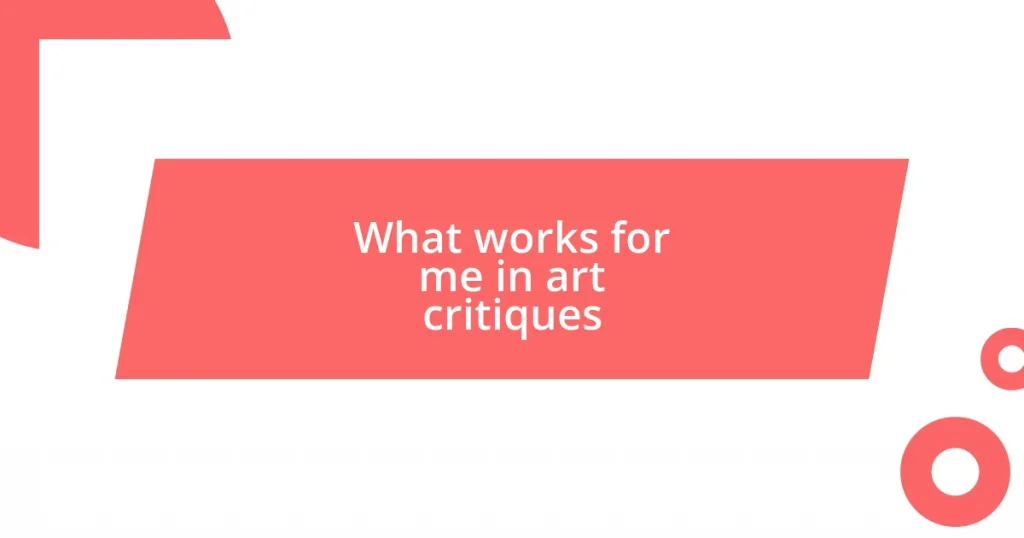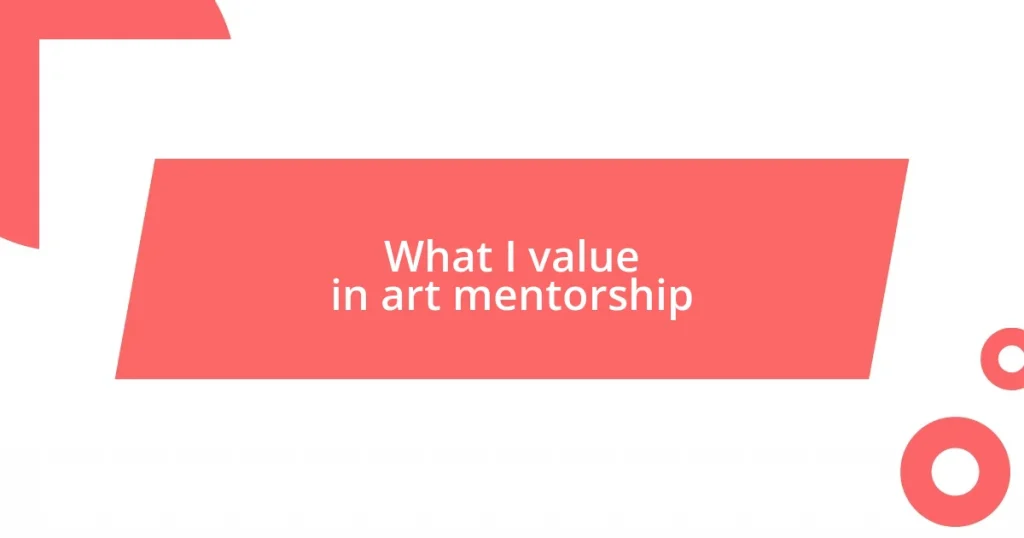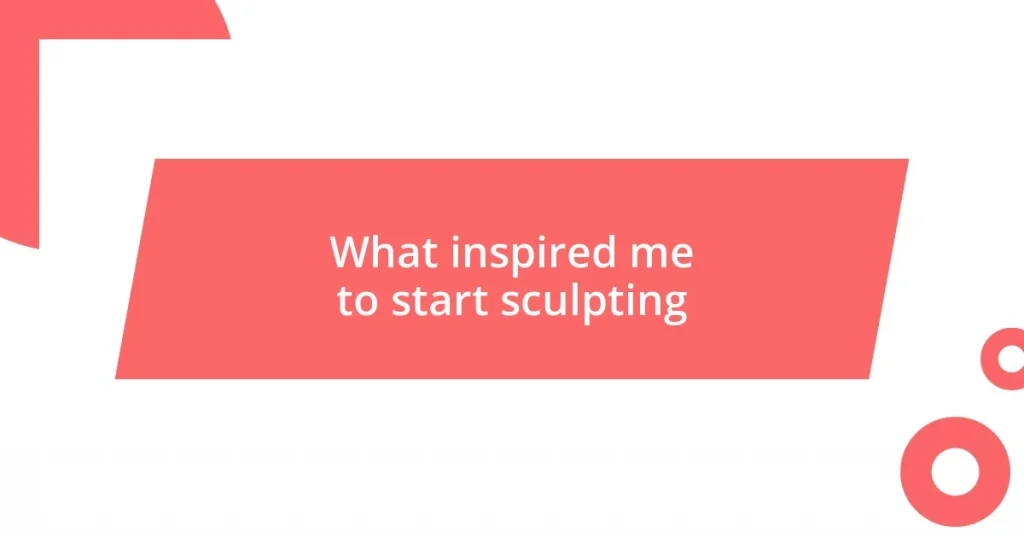Key takeaways:
- Vulnerability and authenticity in performance create a genuine connection with the audience, enhancing emotional expression.
- Audience engagement is crucial; it transforms performances into shared experiences and allows for spontaneous moments of magic.
- Consistent practice builds confidence and transforms mistakes into opportunities for connection and growth during performances.
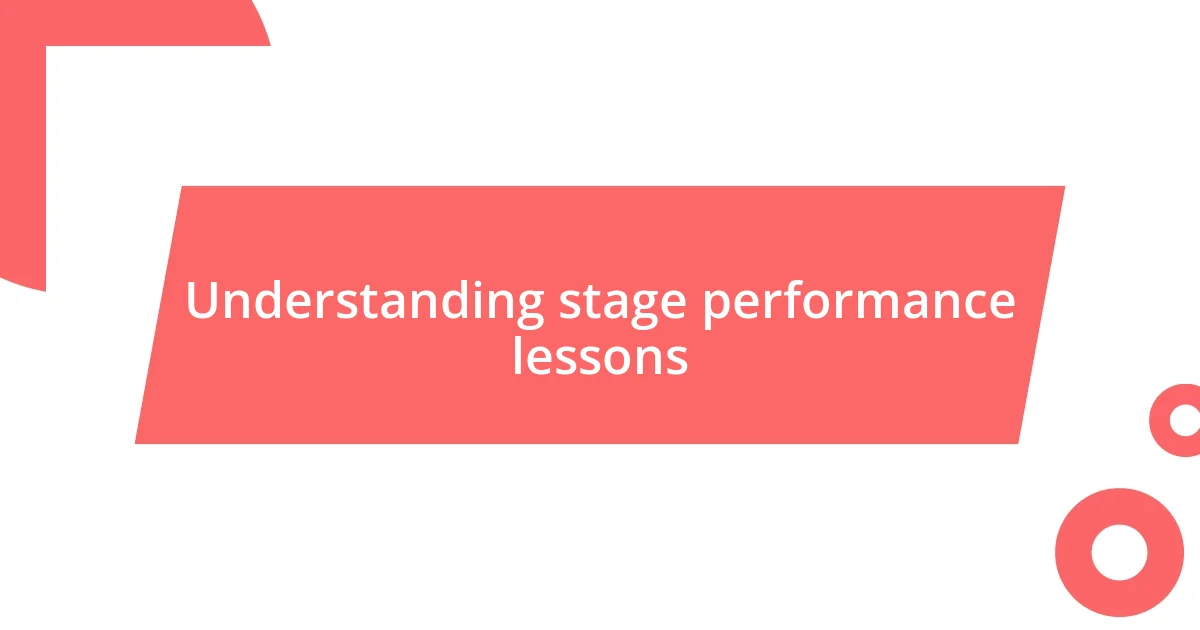
Understanding stage performance lessons
One of the most profound lessons I’ve learned from performing on stage is the importance of vulnerability. I remember my first solo performance; my hands trembled, and I felt completely exposed under those bright lights. But as I shared my story through song, I realized that my imperfections made the experience authentic, resonating with the audience in a way that perfection never could. Have you ever felt that connection where the audience just gets you?
Another valuable lesson centers around the power of presence. I once had a moment where I got distracted by the crowd rather than focusing on my performance. I could feel the energy shift. The moment I redirected my attention to the music and the emotions behind it, everything fell into place. How often do we let outside distractions pull us away from what truly matters?
Lastly, timing is everything, not just in delivering a punchline or hitting a note but in pacing yourself emotionally. During one performance, I rushed through a particularly touching section because I was nervous about time, and the moment fell flat. I learned that allowing silence and space can amplify moments of impact. Have you ever found yourself hurrying through something when slowing down could have made all the difference?
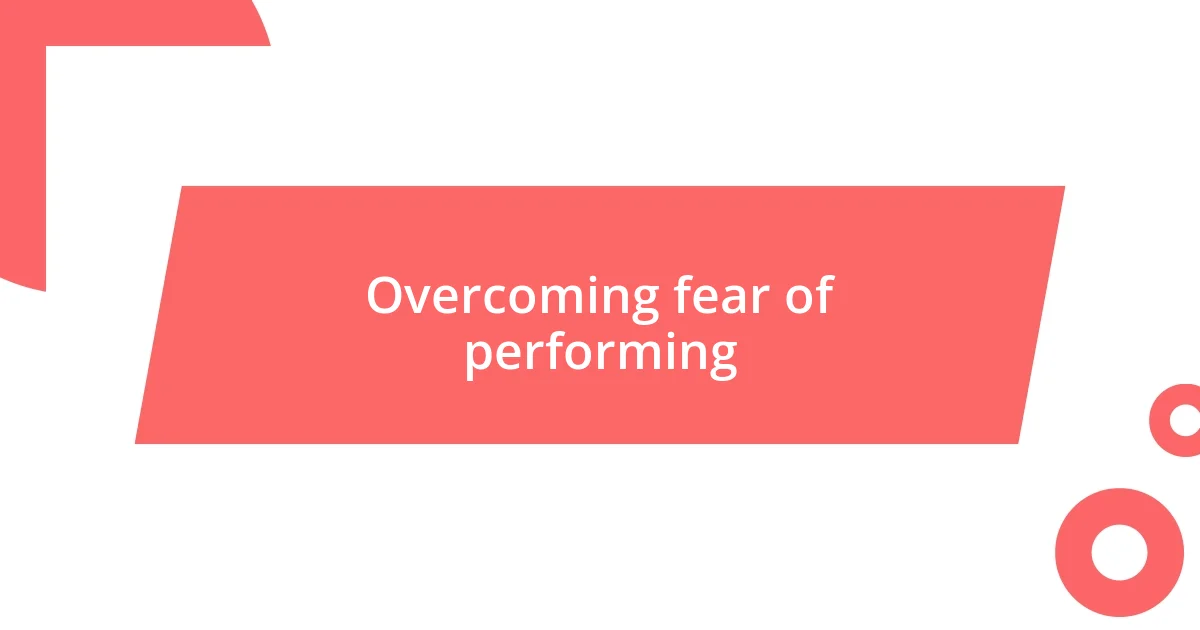
Overcoming fear of performing
The fear of performing can be overwhelming, a feeling I know all too well. I remember standing behind the curtain, heart racing, thinking about how many people were out there waiting for me to step onto the stage. I took a deep breath and reminded myself that every performer, no matter how seasoned, has felt those same nerves. It’s all about transforming that fear into energy and using it to fuel an authentic performance.
Here are some strategies that have helped me overcome that fear:
- Preparation is key: I always rehearse until the material feels like second nature. It gives me confidence.
- Visualize success: Before stepping on stage, I close my eyes and imagine myself performing flawlessly. It creates a positive mindset.
- Embrace the audience: I try to see them as friends rather than critics. This shift changes everything.
- Accept imperfection: I’ve learned that not every moment has to be perfect. Mistakes often lead to memorable moments.
- Focus on the message: Keeping my attention on what I want to convey helps drown out the fear. It’s about sharing, not performing.
This combination has not only helped me manage my anxiety but has also transformed the way I connect with the audience.
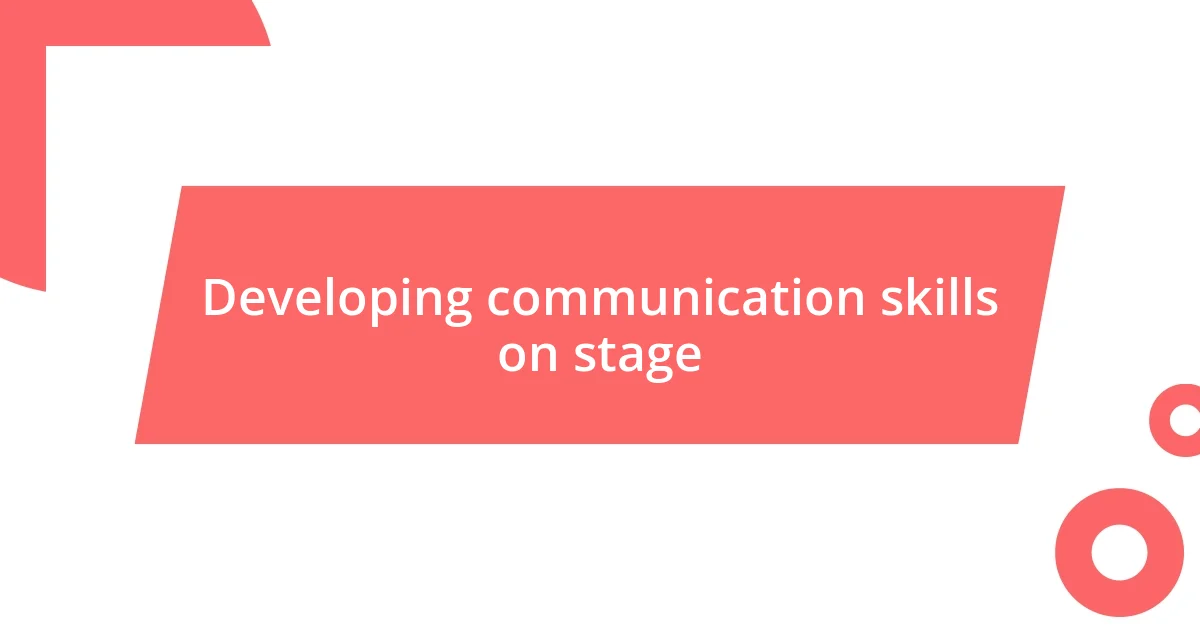
Developing communication skills on stage
Stage performances have a unique way of sharpening communication skills. I recall a time when I was presenting to an audience that was partly composed of friends and family. The familiarity made me want to connect even more deeply. I tried to engage with them through my expressions and body language, not just my words. Suddenly, I found myself using eye contact as a powerful tool to hold their attention. Have you ever noticed how a simple glance can create a bond with an audience?
As I continued to perform, I discovered that vocal modulation is crucial. There was a performance where I played with the dynamics of my voice, varying my tone to emphasize emotions. I learned that a quiet whisper can pull people in closer, while a spirited shout can energize a room. This experience made me aware of how varying my delivery fosters a deeper connection. Isn’t it fascinating how the way we say something can change the entire message?
Finally, I realized that listening is as vital as speaking. During a Q&A session after one of my performances, I discovered that truly paying attention to audience questions opened up richer conversations. It was in those moments that I learned what resonated with them and how my delivery could adapt to better meet their needs. Have you ever experienced the thrill of genuine dialogue with your audience, where their curiosity shapes the conversation?
| Communication Skill | How It’s Developed |
|---|---|
| Engaging with the Audience | You learn to use eye contact and body language to connect. |
| Vocal Modulation | Adjusting your voice creates varied emotional impacts. |
| Active Listening | Paying attention to audience feedback enhances interaction. |
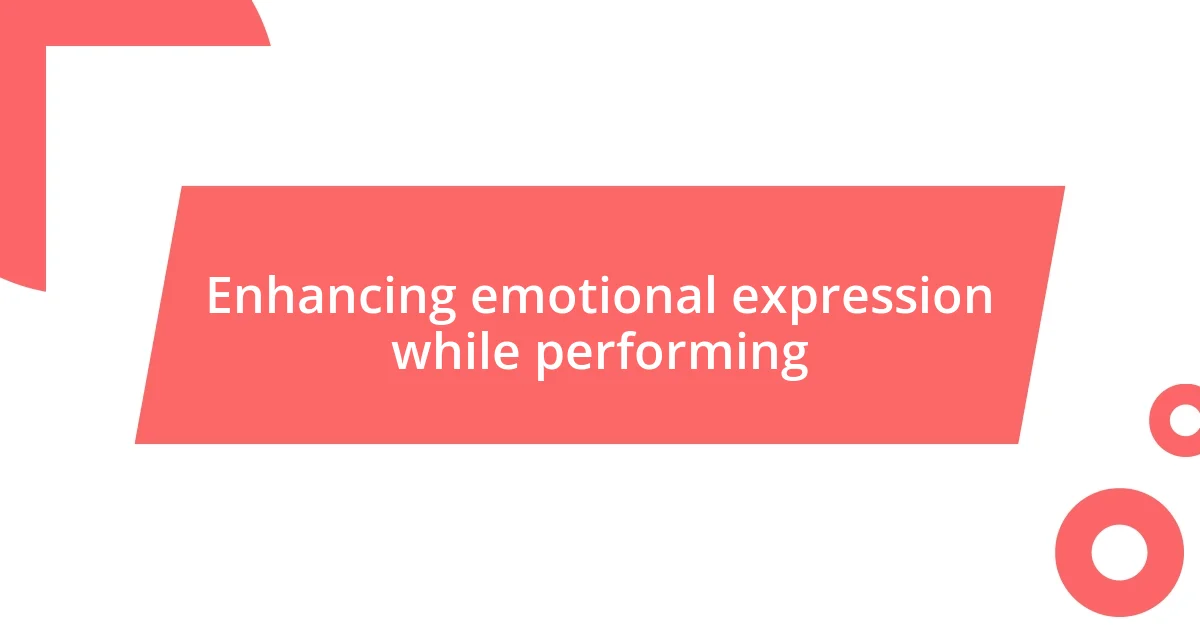
Enhancing emotional expression while performing
I’ve found that enhancing emotional expression on stage is a journey that goes beyond the scripted lines. One performance stands out vividly in my memory—it was during a dramatic scene where I needed to portray vulnerability. As the lights dimmed, I tapped into my own experiences of heartbreak. The tears I shed were genuine, and I felt the audience’s collective breath hold. Have you ever left a piece of yourself on stage? That connection is what it’s all about.
Physicality plays a significant role in conveying emotion. During a recent monologue, I realized how important my gestures were in amplifying the sentiments I wanted to express. When I threw my arms wide open, it felt like I was inviting the audience to share in my joy. Conversely, curling up into a small figure during a sad moment effectively communicated despair. Do you see how your body can tell a story just as profoundly as your words?
As I reflect on my performances, I’ve learned that authenticity breeds empathy. I’ve noticed that when I perform with genuine emotions, it resonates with the audience. There was a night when I felt particularly vulnerable and shared a personal struggle. The room felt electric, and I could see it in their eyes—empathy transformed my performance into a shared experience. Can you remember a moment where you felt truly understood? That’s the magic of emotional expression on stage.
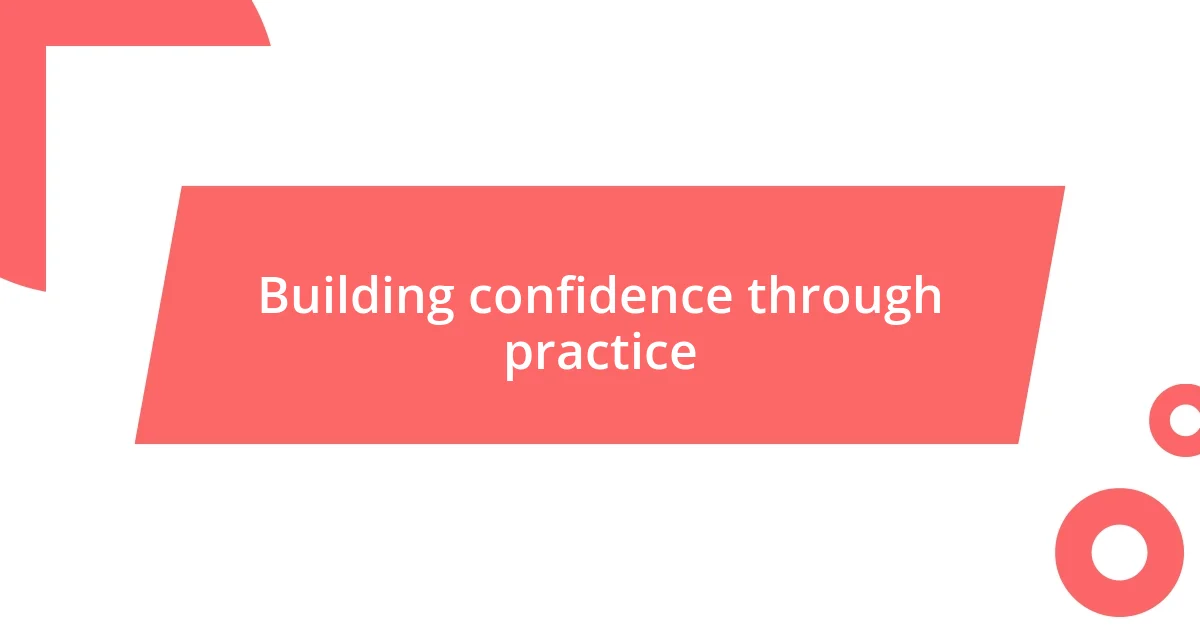
Building confidence through practice
Building confidence through consistent practice has been a game-changer for me. I remember a particularly nerve-wracking rehearsal for a big performance. Standing in front of the mirror, I recited my lines over and over, feeling the weight of my anxieties start to lift with each repetition. Have you ever felt your fears fade just a bit after practicing something again and again? It’s that direct connection between effort and self-assurance that truly makes all the difference.
There was a time when I thought stage presence was something you either had or you didn’t. But with practice, I discovered that it’s like building a muscle. Each time I stepped onto the stage during rehearsals, I felt my confidence grow, allowing me to own the space and command attention. Can you visualize the difference between a hesitant performer and one who walks on stage with purpose? I can assure you, it’s palpable.
What struck me the most is that vulnerability can transform into strength through practice. In one of my earlier performances, I stumbled on stage a bit, and instead of clamming up, I laughed it off. The audience responded, and in that moment, I realized that genuine feelings could fortify my confidence. Isn’t it amazing how embracing our mistakes openly can create a deeper connection with the audience? That day taught me that confidence isn’t just about perfection; it’s about growth and presence.
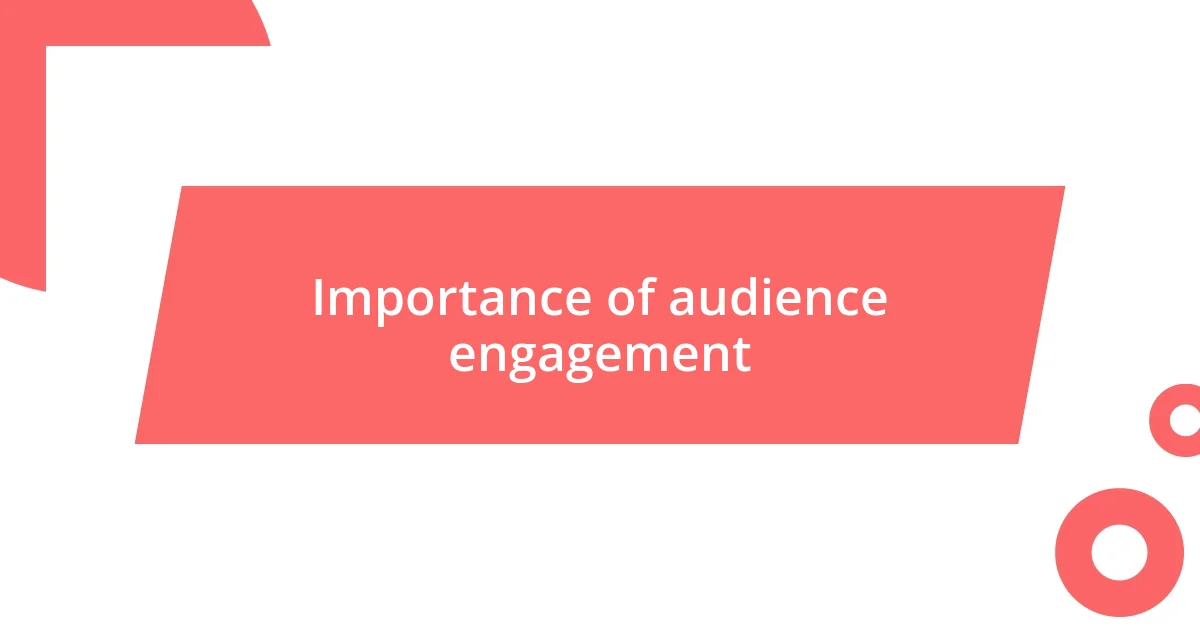
Importance of audience engagement
Engaging with the audience is a crucial aspect of any performance. I remember a show where I made eye contact with a woman in the front row, and it felt like I was sharing a secret with her. This connection transformed the energy in the room; I could feel her leaning in, hanging on every word. Have you experienced that rush when you see someone truly engaged? It’s as if the lines blur between performer and spectator.
Moreover, incorporating audience reactions into the performance can create countless unplanned moments of magic. During one of my live performances, I noticed a group of friends laughing at a line I never anticipated would hit them so humorously. Instead of moving on, I paused—with their laughter surrounding me, I felt empowered to riff off that moment. What I’m saying is, this back-and-forth exchange ignites a spark that makes each performance unique.
Ultimately, the importance of audience engagement lies in its ability to elevate both the performer and the audience. I’ve found that when I invite my audience into the narrative, I’m not just telling a story; I’m creating an experience. Isn’t it fascinating how sharing a moment on stage can uplift everyone involved? This connection fosters a shared emotional journey that leaves lasting impressions far beyond the finale.
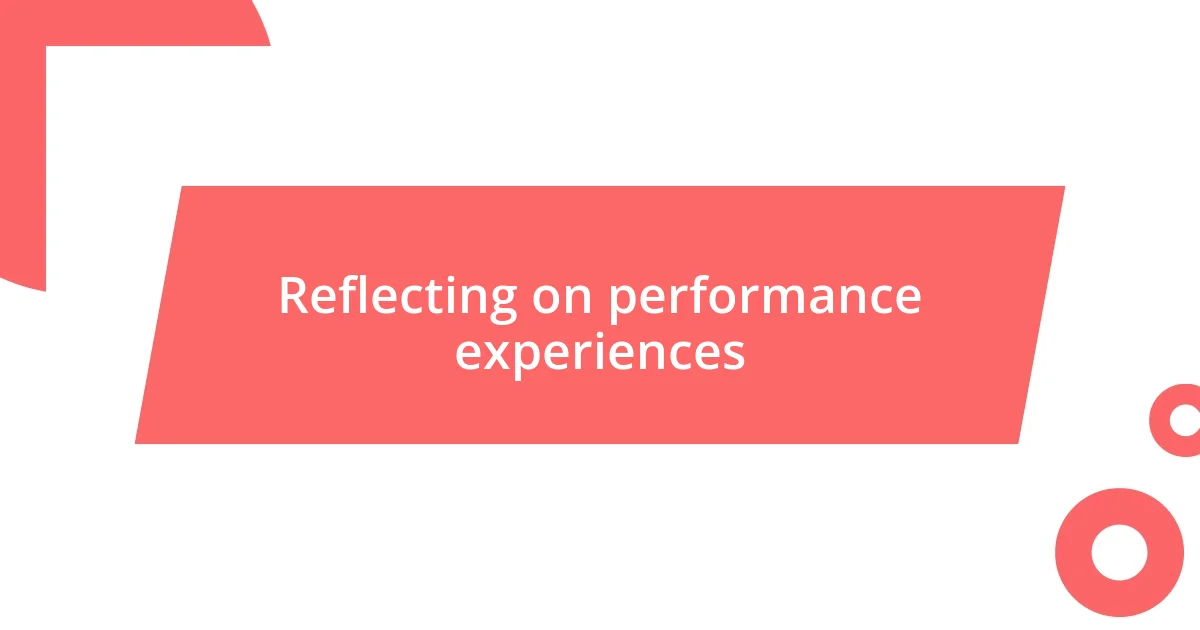
Reflecting on performance experiences
Reflecting on performance experiences can be both enlightening and humbling. I think back to one of my earliest performances when I experienced a wave of emotions that nearly overwhelmed me. The adrenaline was surging, and as I stepped off stage, I felt a mix of pride and relief. Have you ever examined your feelings after a big moment? It’s fascinating how reflection can reveal growth that’s not immediately apparent in the heat of performance.
There have been countless times after a show when I’ve replayed everything in my mind, analyzing what went well and what didn’t. I recall a performance where I lost my place but quickly improvised. Later, I realized that my ability to adapt not only saved the scene but also deepened my connection with the audience. Can you relate to that moment when you realize that things don’t always have to go perfectly to create a memorable experience? This understanding has reshaped how I approach future performances, turning potential pitfalls into opportunities for resilience.
One of the most significant takeaways from reflecting on my performances is the realization that each experience is a building block in my artistic journey. I’ve had nights where everything aligned, and others where I felt like I was still finding my footing. Yet, every performance teaches me something new—whether it’s the importance of pacing or how powerful a simple glance can be. Isn’t it remarkable how every stage moment contributes to our overall growth, shaping not only our skills but also our understanding of ourselves?










